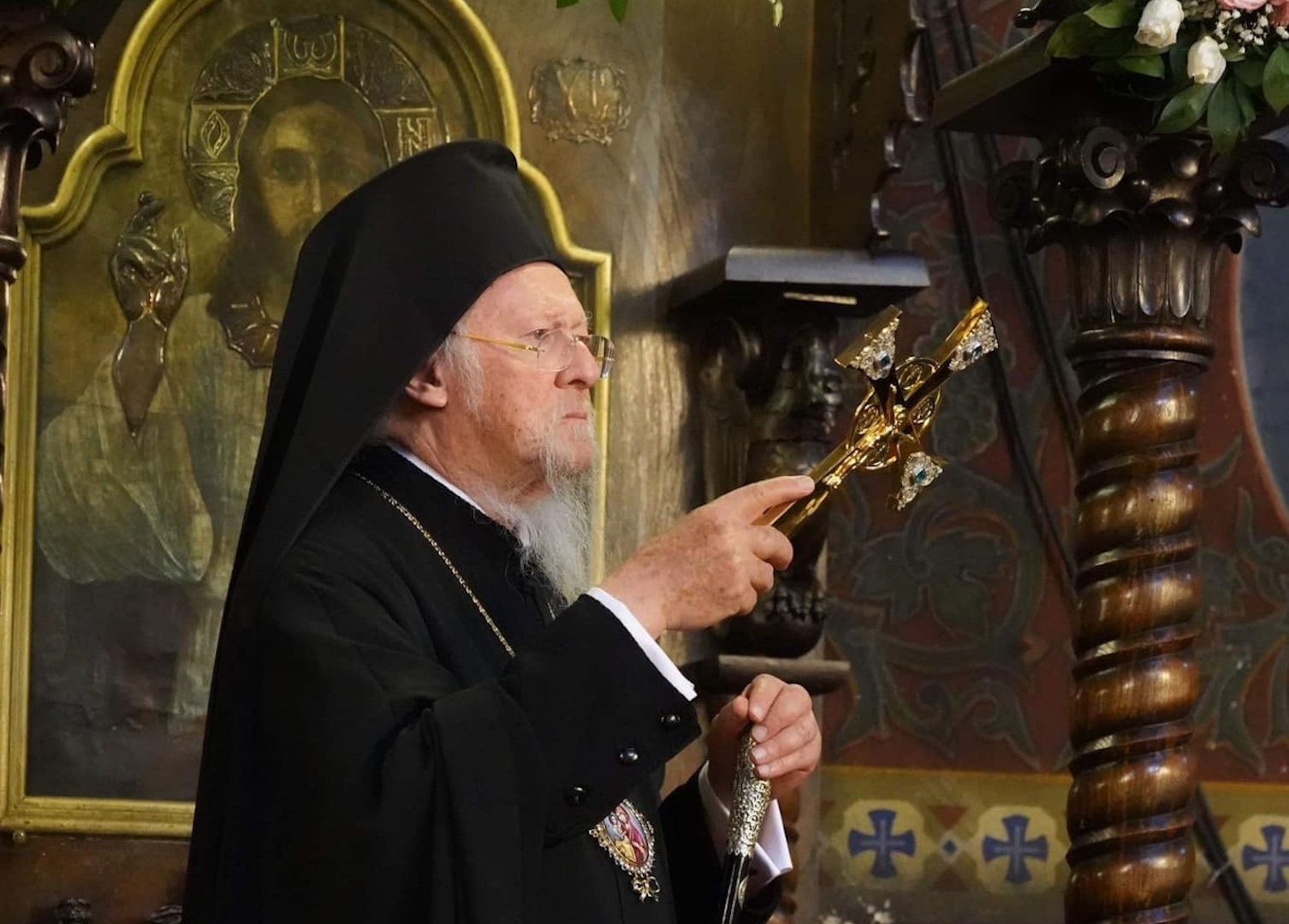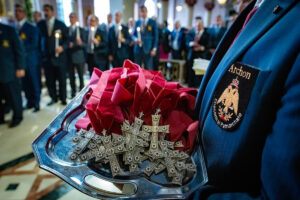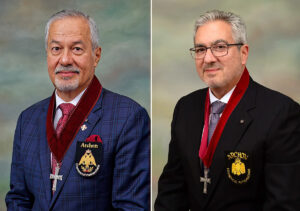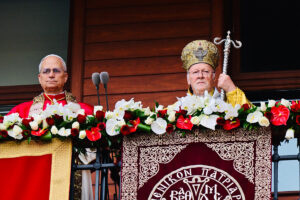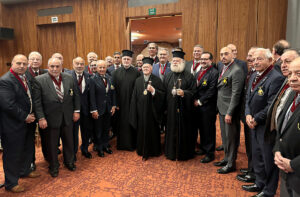His All-Holiness Ecumenical Patriarch Bartholomew has repeatedly addressed the claim that theology and science are in conflict, and has explained, in an address on the Great Feast of the Nativity of our Lord Jesus Christ in 2024, that not only is it a false assumption that there is any incompatibility between them, but that they are “two great forces that serve humanity.”
The Ecumenical Patriarch elaborated on this point in December 2023, at the 3rd International Conference on “Bioethics and Young People” at the Phanar: “It is written that the discussion on the modern bioethical dilemmas between the Church and Science reminds the Church of the confrontation with revolutions in the field of natural sciences, associated with the name of Newton and Darwin. We believe that such a perspective benefits neither the relations of faith and science nor the hypothesis of dealing with bioethical problems. Faith and science are beneficial forces for man. Their cooperation promises a future full of expectations. It is inconceivable and ineffective for faith to be suspicious of scientific knowledge and for science to link the future only to its progress.”
In line with these principles, the Ecumenical Patriarch has maintained throughout his long and fruitful ministry that those who have dedicated their lives to the service of Almighty God and His Holy Church must be thoroughly informed regarding the events of this world and the concerns of the people.
His All-Holiness reminded us of this in his 2024 Feast of the Nativity address, in when he stated: “It was said a few decades ago, as we have mentioned on another occasion, that the theologian and the priest must hold ‘the Bible in one hand and the newspaper in the other.’ This means that, alongside theology, it is essential to stay informed about worldly matters, understand the existential needs and aspirations of modern humanity, address social issues, and remain attuned to the spirit of the age and the trends shaping civilization.”
In line with this necessity for clergy to be well-versed in matters of this world, the Ecumenical Patriarch emphasized that “the dialogue between theology and science must not be a clash between adversaries but a collaboration between two great forces that serve humanity. It should be a partnership, not a rivalry.” He pointed out that the Ecumenical Patriarchate “has never been an advocate of an inward-looking or closed Orthodoxy, as it follows the words of the Lord: ‘A city set on a hill cannot be hidden.’” (Matthew 5:14).
The Ecumenical Patriarchate, said His All-Holiness, “has never conservatively fixated on the past but, with the certainty that Tradition is the very life of the Church in its uninterrupted continuity and cohesion, it has proclaimed the Gospel of freedom in Christ relevantly and timely to the present.”
This openness, he stated, must be true of the Church as a whole: “Introversion and insularity, whenever and wherever they appear, reflect an inner distortion of church life and spirituality. The causes and effects of such a condition are difficult to address, as they are often not recognized as a risk.”
The Ecumenical Patriarch also spoke movingly about how theology must not only be open to science, but science must be open to theology, for a materialistic world view does not answer the questions of human existence or satisfy the hunger of the soul: “Our life may be prolonged, but it does not automatically acquire a deeper meaning. We may know what death is biologically, but this knowledge does not bridge the ‘existential contradiction’ between life and death. Human aggression and its causes may have been studied scientifically in-depth, but this did not solve the problem of evil, which is rooted in human freedom. There is not only measurable reality. There is the ‘dimension of the depth of things,’ the mystery, the meaning, the beauty. The ‘miracles’ of science did not eliminate the questions of our freedom.”
As a result, the Ecumenical Patriarch concluded, “We are sure that religions will have an important role to play in dealing with existential dilemmas. Religions are associated with the brightest aspects of our existence, charity and ministry, religious art, the hope of eternity, respect for the human person, and deep anthropological knowledge. It is a fact that religions have fueled, and are doing so today, division, fundamentalism, and violence in the name of God. But this is not their essence, but an expression of their alienation. Therefore, the dilemma for humanity cannot be ‘religion or not,’ but ‘what kind of religion?.’ The aim is for religion to contribute to the elevation of man, to the emergence of his eternal destiny, and to peace and reconciliation.”
The Archons of the Ecumenical Patriarchate, in their work to support and defend the Ecumenical Patriarchate and protect religious freedom, are offering a contribution to that peace and reconciliation.

